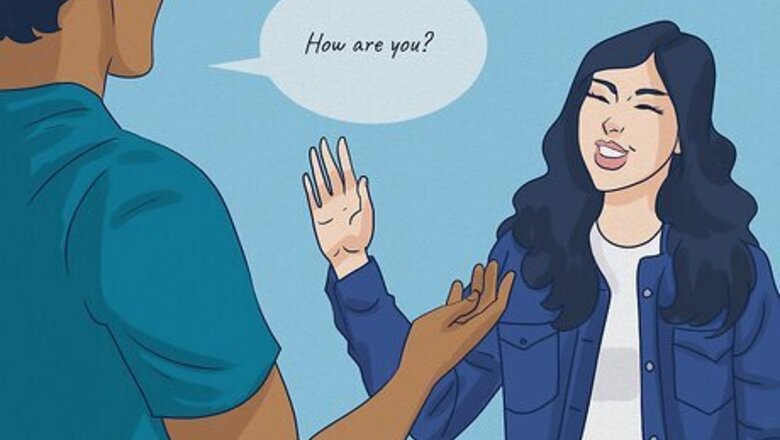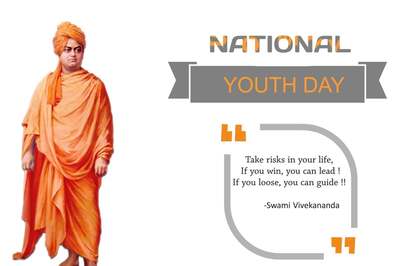
views
Best Conversation Starters

Ask about them and their day. This classic conversation starter is suitable for virtually every situation—it’s polite, pleasant, friendly, and engaging. Open with this question (or a variation of it) the next time you’re not sure what to say and let the rest unfold organically. Here are some options: “How are you?” “How’s it going?” “What’s up?” “What have you been up to?” “How’s life?” “How’s your day going so far?” “Anything new with you?” “What’s going on in your neck of the woods?” Meet the wikiHow Experts Adina Zinn, MPA, is a certified career and life coach with five years of experience in the field. Amber Rosenberg, PCC, is a life and career coach with over 20 years of coaching experience.

Comment on your environment. This is appropriate to do at weddings, parties, conferences, school functions—any event with a crowd. Making this kind of observation after saying “hi” can turn into talking about how many people each of you knows there, your expectations for the rest of the event, and perhaps even plans for an afterparty. Here are other examples: “There are so many people here!” “This is such a beautiful setup, isn’t it?” “Wow, everyone here cleaned up nicely!” “What a lovely venue!” “The DJ is playing some bangers!” “Have you tried the hors d'oeuvres? They’re delicious!”

Compliment them. American icon Mae West once said, “Flattery will get you everywhere,” and she may have been on to something! If you open up a conversation with flattery, two things are important: be sincere and react accordingly to the person’s reaction. Although most people enjoy and appreciate compliments, some may feel uncomfortable. If this person is someone you’d like to date, lead with confidence, and don’t be afraid to hint at your true feelings. Here’s what to say: “You look amazing.” “I love your outfit.” “You definitely stand out from the crowd.” “Well, aren’t you a sight for sore eyes!” “It’s nice to see you!” “I was hoping you’d be here!” “Your hair and makeup look flawless.” “I love that scent you're wearing—what is it?” “You’re the most beautiful [girl/boy/etc] here.” “You have such a warm energy.” “Your smile is contagious!” “You’ve brought such a thoughtful gift!”

Bring up a mutual interest. Asking about the host, the situation, or anything else you have in common is great at a house party or similar event. For example, if you see someone who catches your eye, asking them how they know the host is an excellent way to move the conversation along—you can take turns sharing more details, relevant anecdotes, etc. Here are more ideas: “How do you know the host?” “How’s the weather out there?” “I’m going to grab a drink— want one?” “Are you from around here?” “Have you been friends with [x] long?” “How do you like this city?”

Make a sassy remark to flirt with them. Although you can use funny one-liners, these might work best when shared with a promising love interest. As long as you’ve met them in person at least a couple of times, opening with a flirtatious quip may make them smile, and before either of you knows it, they’ll be falling in love. So, use with caution! “I guess they let anyone in here!” “We’ve got to stop meeting like this.” “Look what the cat dragged in.” “Well, well, well, if it isn’t my future [wife/husband/etc].” “Thank you for making time for us mere mortals!”
How to Have Engaging Conversations

Practice active listening. Although it’s very human to get ahead of ourselves to try and anticipate how a conversation, staying present and practicing active listening is key. This means no jumping ahead to the imagined end of the other person’s sentence, but truly lending them your ear and undivided attention. Life coach Amber Rosenberg, PCC agrees, believing that listening allows us to “engage in an authentic way” with others. “Listen to truly hear them instead of half-listening while thinking about how to respond,” she advises. Certified career and life coach Adina Zinn, MPA suggests you start by “getting rid of distractions.” She says, “Turn off all the notifications, put away your phone, and try to clear your mind before you're in a situation where you're going to need to practice active listening skills.” According to Zinn, “focus on what the person is saying and think about where they're coming from and what their background is.” Zinn asserts that “being non-judgmental” and “coming from a place of neutrality” are also really important.

Ask thoughtful questions. For people who tend to be shy, introverted, and nervous about initiating conversations, Rosenberg encourages asking questions, noting that “meaningful questions will help you interact in a way that feels more authentic and less superficial.” She recommends you lead with “open-ended questions that start with ‘how’ and ‘what.’ For example, ‘What are your thoughts on this event?’” Once they’ve shared something with you, Zinn suggests following up with questions like, “Can you tell me more about that?” Or, “Why do you have that belief?” Try asking questions like: “What was your favorite part of [x]?” “Why do you think that affected you so much?” “Would you go back and change [x] if you could?”

Share something significant about yourself. Conversations are a give-and-take, with the aim of learning more about the other person, and allowing them to learn more about you. Zinn says that when we choose to talk about something “very personal,” that “often encourages other people to do the same [...] then it becomes no longer awkward.” Rosenberg adds, “At the end of the day, everyone just wants to be heard.” Here are examples of appropriate things to share: A personal anecdote in which you experienced what the other person is referencing (a bad breakup, a falling out with a friend, getting fired from a job, etc) An uplifting piece of advice that helped you get through a similarly tough situation A different perspective to help them see that there is a bright side/other way to view a situation.




















Comments
0 comment